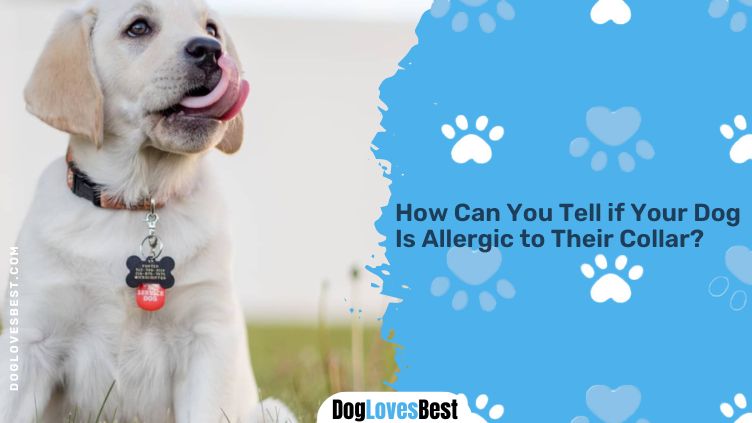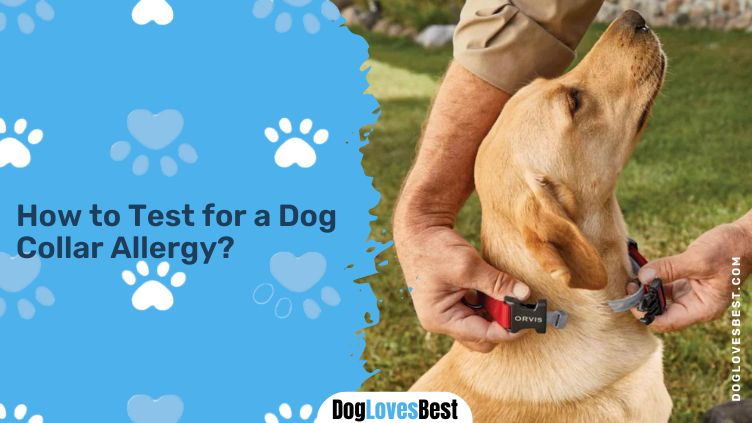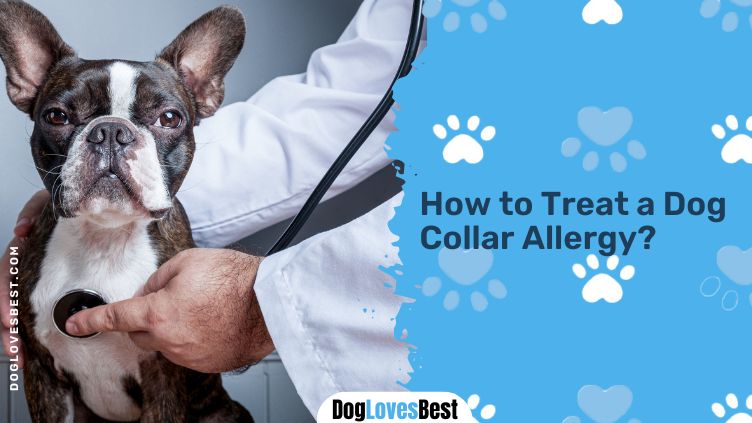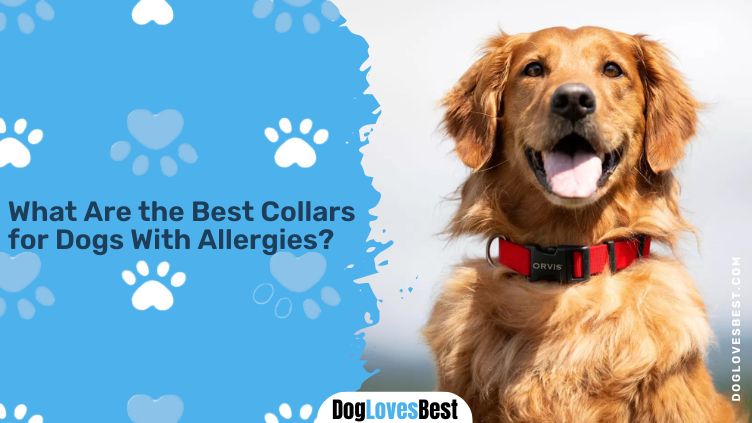Wondering why your pup’s collar might be causing allergies and skin issues? This article will provide insight into the possible causes, as well as what steps you can take to help alleviate these issues for your beloved pet. Don’t think of a collar as just a harmless accessory – it could be much more than that!

Do you ever find your pup incessantly scratching their neck? It could be an indication of an allergy to their collar! Here, we’ll look into the symptoms of a canine collar allergy and how you can assist your four-legged companion.
How Can You Tell if Your Dog Is Allergic to Their Collar?
If your dog is exhibiting signs of discomfort or itchiness while wearing their collar, they may be allergic to the material. To determine if this is the case, try switching to a different type of collar and see if there are any improvements.

If your pup’s skin becomes irritated or develops a rash, it may be an allergy to the metal in the collar – in which case you should look for one made out of another material. For further guidance on how best to handle an allergic reaction from their current collar, consult with your veterinarian.
What Are Some Alternative Collars for Dogs With Allergies?
If your pup is allergic to their collar, there are several hypoallergenic options for you. Leather collars provide comfort and won’t irritate the skin. Boiled wool is another great choice that will help keep allergies at bay. For a more budget-friendly option, look for fabric collars that are specially treated to be allergy-free.
You can also opt for a harness instead of a collar. Harnesses are designed to distribute weight more evenly and reduce irritation on your pup’s skin.
It is important to remember that not all collars are created equal, so it is best to read reviews or speak with an expert before making a purchase. Additionally, you should always measure your dog’s neck before buying any type of collar or harness in order to ensure the perfect fit!
What Are the Symptoms of a Dog Collar Allergy?
If your dog is allergic to their collar, they may experience a number of symptoms. We have jotted down few symptoms, which your canine might show up.
- Itchy skin
- Hives
- Swelling of the face, ears, or paws
- Bald spots
- Red, inflamed skin
- Excessive licking or scratching
They may also scratch or lick at the area where the collar rubs against their skin. If you notice any of these symptoms, it’s important to take your dog to the vet to get checked out.
How to Test for a Dog Collar Allergy?
If you think your pooch might be allergic to their collar, there are a few ways to test for allergies.

Start by trying out a different type of collar and see if the symptoms subside – this could indicate an allergy to something in the original one. Another option is applying some of what may be causing the reaction (e.g., fabric from original collar) on a small area of their skin and watch for any reactions within 24 hours – this would likely mean they’re allergic to it.
If you’re still unsure about what exactly is triggering your pup’s allergies, consult with your veterinarian about getting an allergy test done!
How to Treat a Dog Collar Allergy?
If you think your pup may have an allergic reaction to their collar, it is important to speak with a veterinarian. They can confirm if the allergy is due to the material of the collar or another allergen in their environment.

If it’s from their neckwear, there are some steps you can take: try changing out its material such as leather or nylon; apply a hypoallergenic ointment around your dog’s neck before putting on the new one; and consider using a harness instead of traditional collars. Ultimately, consulting with your vet first will help ensure that what you do for them is best for managing allergies related to collars and other components in pet care.
What Are the Best Collars for Dogs With Allergies?
For dogs with allergies, there are several types of collars that can be beneficial. Hypoallergenic collars are made from materials that typically won’t cause any sort of reaction. Leather is a good natural choice as it tends to be hypoallergenic in most cases. Nylon is another great option for these pups, as the synthetic material usually does not trigger an allergic response either.

Additionally, there are collars made of neoprene and rubber that can provide comfort while also protecting against allergens. For dogs with sensitive skin, a soft fabric collar may be the best option. These types of collars are typically made from fleece or cotton and provide extra cushioning and support to reduce irritation on the neck area. Additionally, these fabrics allow your pup’s skin to breathe, which is important for their overall health and wellbeing.
Finally, if you have a particularly active dog who loves playing in dirt or water then consider getting them a waterproof collar as this will protect their neck from any debris they might come across during playtime! Waterproof materials such as silicone rubber offer an extra layer of protection without compromising breathability, so your pup can stay comfortable even when they’re out having fun!
Conclusion
If your dog is scratching or seems uncomfortable when wearing their collar, it may be a sign of allergies. Allergies in dogs are quite common and can be caused by many things, including collars. To ensure your pet’s wellbeing and comfort, take them to the vet for an allergy test. If they are diagnosed with an allergy to their collar, medication will help manage the condition effectively, so there’s no need to worry!
References:
- Hensel, P. (2015, August 11). Canine atopic dermatitis: detailed guidelines for diagnosis and allergen identification – BMC Veterinary Research. BioMed Central. https://doi.org/10.1186/s12917-015-0515-5
- Horak, I. G. (2012, April 22). Efficacy of slow-release collar formulations of imidacloprid/flumethrin and deltamethrin and of spot-on formulations of fipronil/(s) – methoprene, dinotefuran/pyriproxyfen/permethrin and (s) –methoprene/amitraz/fipronil against Rhipicephalus sanguineus and Ctenocephalides felis felis on dogs – Parasites & Vectors. BioMed Central. https://doi.org/10.1186/1756-3305-5-79
- PetMD Editorial. (2022, August 30). 5 Ways Collars Can Harm Your Dog. PetMD. https://www.petmd.com/dog/care/5-ways-collars-can-harm-your-dog
Go checkout the same article Can Dogs Be Allergic to Their Collar, from DogLikesBest.

Peter Thielen has studied veterinary medicine and is a veterinary advisor at DogLovesBest. All the articles on this website that has to do something with the dog’s health go under his scrutiny before getting published. He also writes some of the featured articles on dog foods, treats, or other products, along with tips and tricks for canines for healthy living.
Contents
